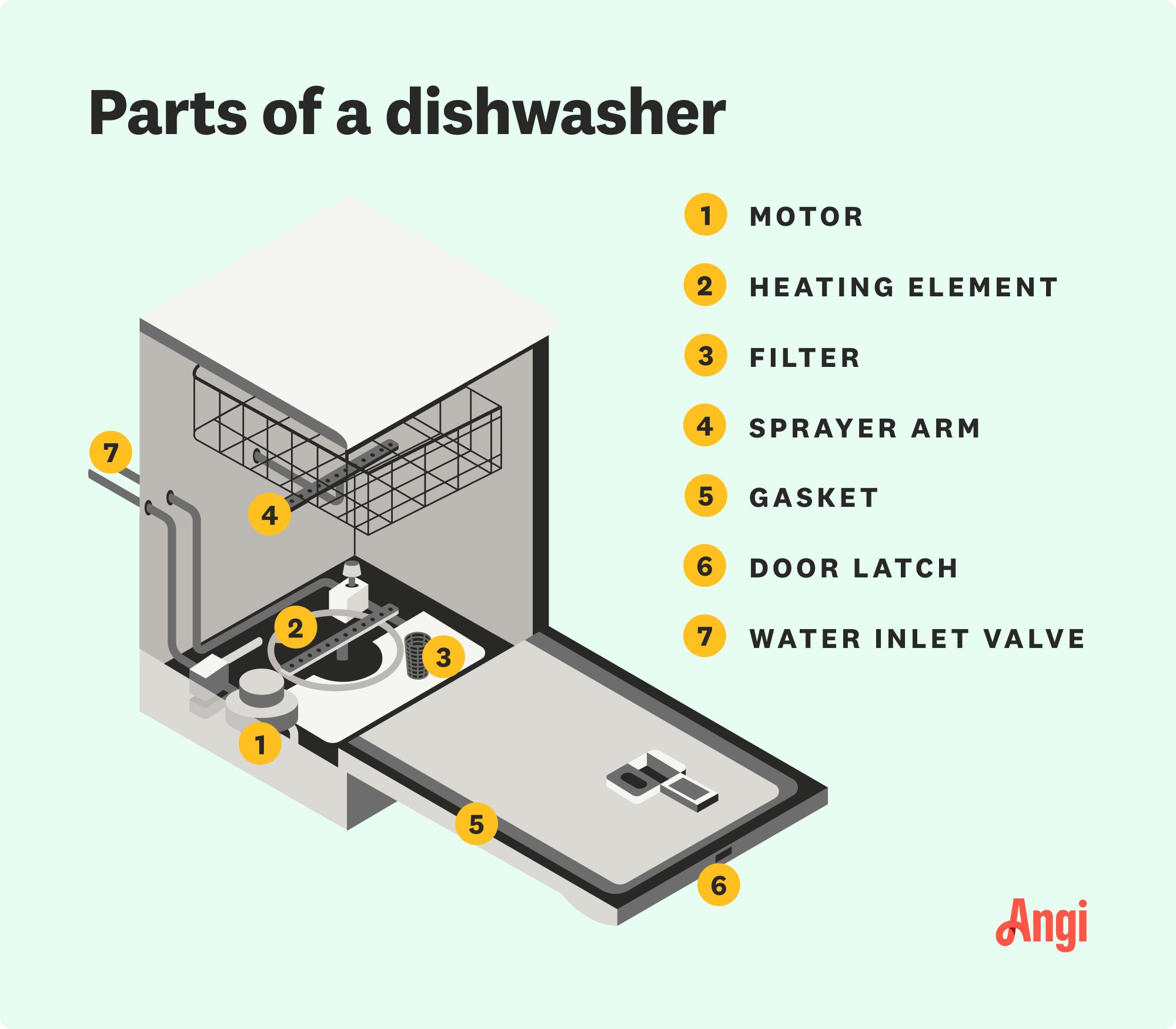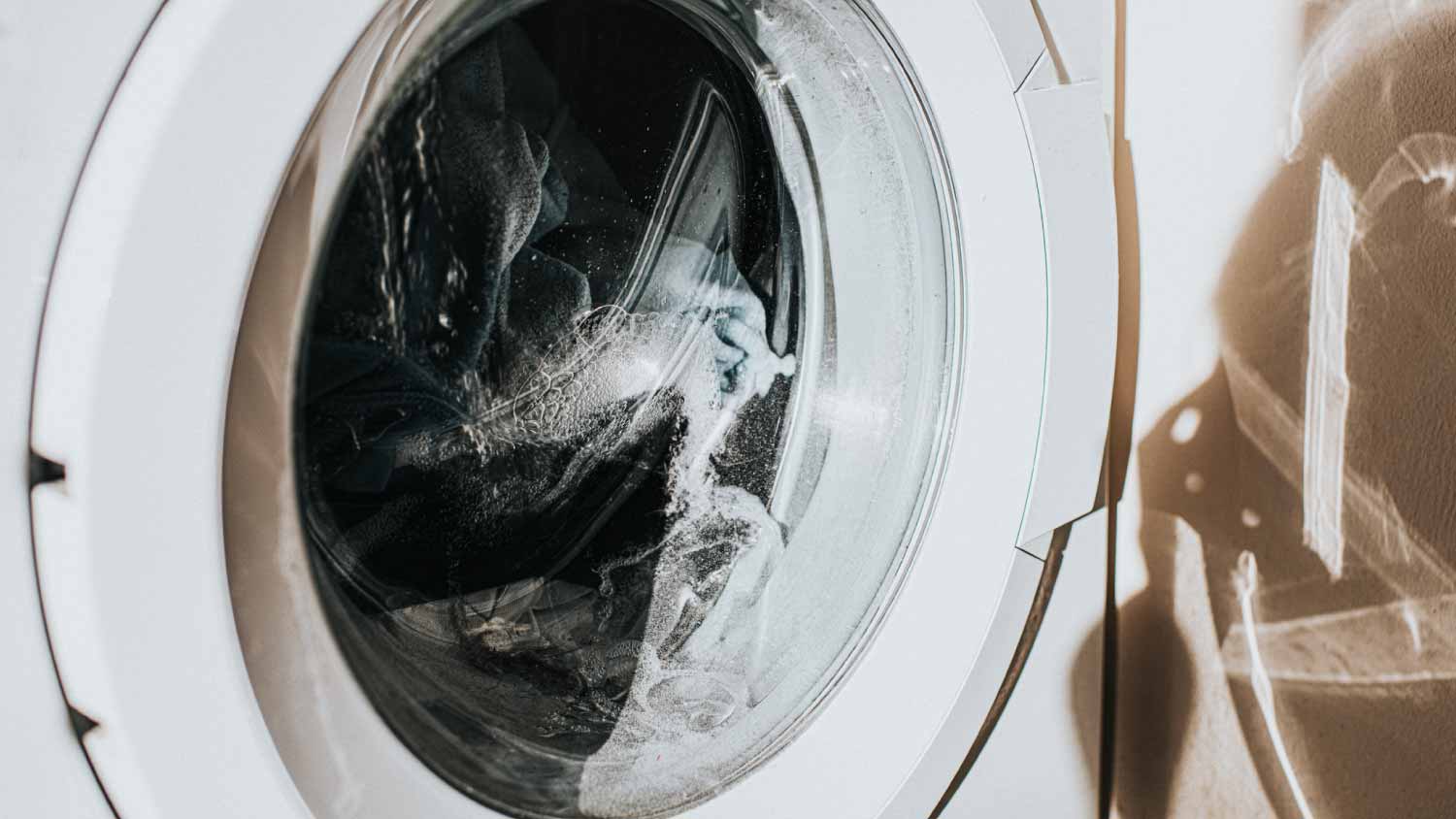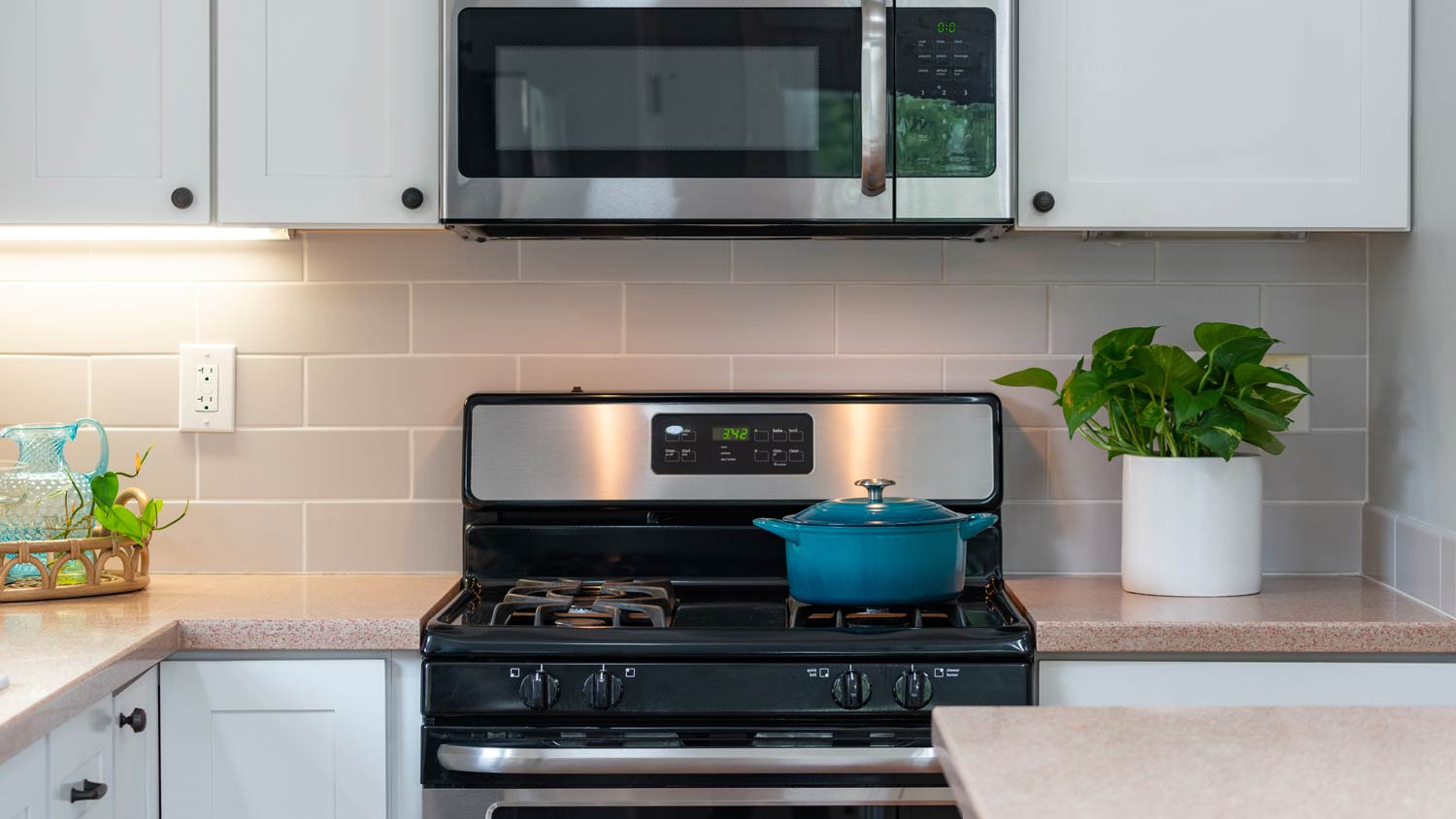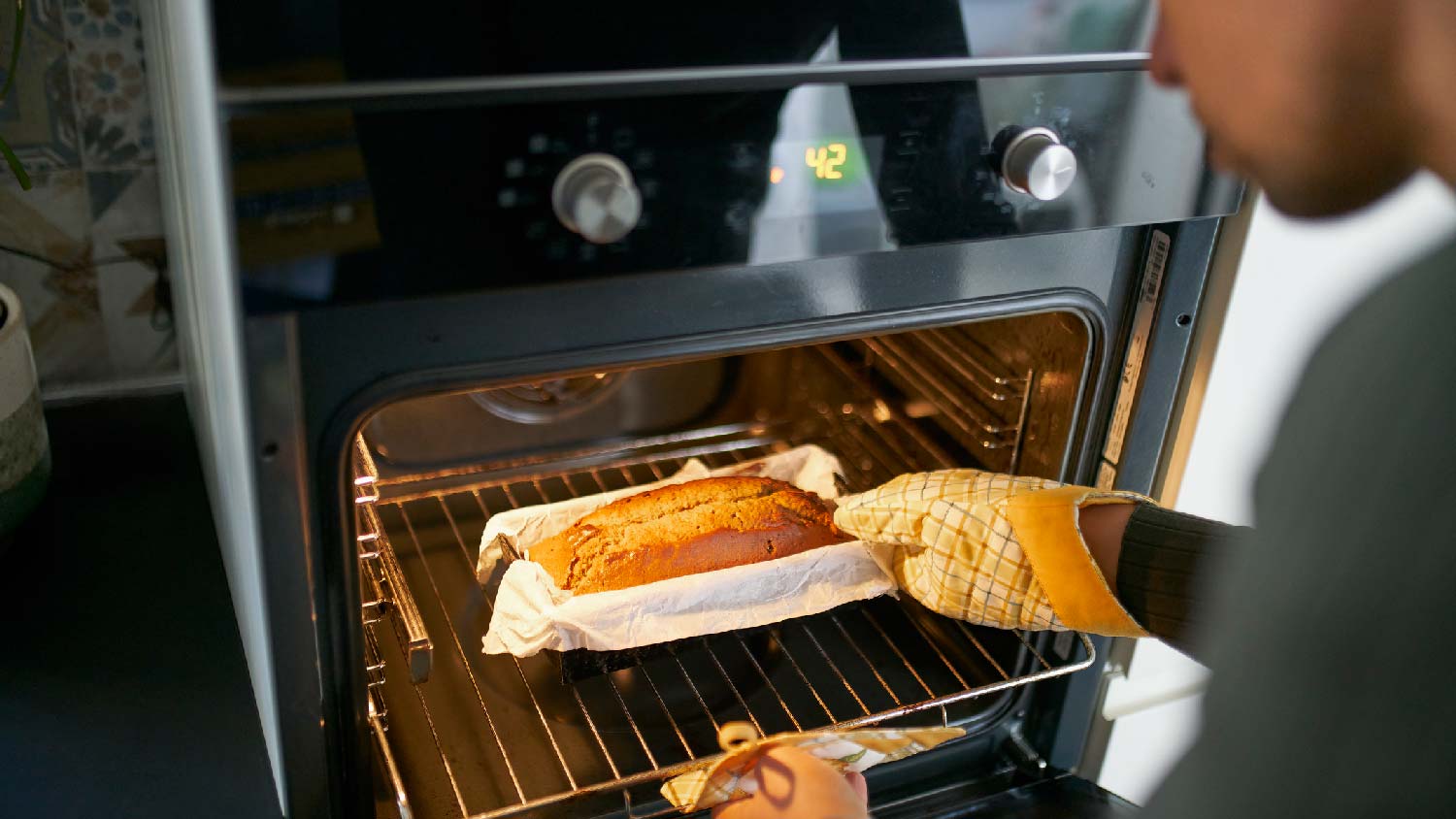How Much Does It Cost to Repair a Dishwasher? [2025 Data]
The cost of dishwasher repairs is $200 on average, but it can cost between $160 and $300 or more depending on the types of repairs you need.


Replacing a rubber filter or gasket can cost as low as $50 to repair.
Depending on the model, electrical components, like the dishwasher motor or pump, can cost hundreds of dollars to repair.
Repairing a newer dishwasher is more affordable than an older model because parts and expertise are more readily available.
You can save money on repairs by buying replacement parts online or through your pro.
Dishwasher repair costs $200 on average, though it can range between $70 to $600 depending on the specific issue. It's easy to rely on a dishwasher's convenience. These appliances work hard to make our lives a little simpler each day. But when this trusty appliance fails, the dishes begin to stack up, and cooking your favorite meal doesn’t seem as appealing anymore.
Average Cost to Repair a Dishwasher
While the average cost to repair a dishwasher is $200, most homeowners pay between $160 and $300. However, the price can range quite a bit depending on factors like your dishwasher's age, whether the appliance is under warranty, and the type of repair or replacement needed.
For instance, if you need to replace your dishwasher's pump, then you'll typically pay around $150 to $350 to do so, but replacing a motor often costs $400 to $600.
How Much Does It Cost to Repair a Dishwasher by Part?

Dishwasher repairs usually involve replacing a faulty part, like the motor or heating element. That’s why the cost to repair your dishwasher can vary quite a bit depending on the part that needs replacing.
| Part | Average Cost |
|---|---|
| Pump | $150–$350 |
| Motor | $400–$600 |
| Heating element | $150–$250 |
| Filter | $50–$100 |
| Sprayer arm | $75–$100 |
| Rubber gasket | $50–$100 |
| Door latch | $150–$250 |
| Water inlet valve | $80–$125 |
Dishwasher Pump Replacement Cost
Your dishwasher's pump is responsible for draining its water, so if your dishwasher isn't draining properly or is leaking water onto the floor, it's likely a pump problem. A foul odor coming from your dishwasher can also indicate water build-up, and thus, pump problems.
It typically costs around $150 to $350 to replace a dishwasher pump, but the cost can reach as high as $400 to $600, depending on the type of dishwasher you have.
Dishwasher Motor Replacement Cost
Your dishwasher's motor runs the aforementioned pump, which drains the water, so signs that the motor is out are similar to a faulty pump, like water pooling around the dishwasher or otherwise not draining properly.
However, motors are usually more expensive to replace than pumps, costing around $400 to $600. If you have a new or popular dishwasher model, then it'll likely cost a little less than if you have an older model, since it's easier to find and order motors for newer models.
Dishwasher Heating Element Replacement Cost
Your dishwasher's heating element heats the water that cleans the dishes. It also heats the air during the drying process. If you notice that the dishwasher isn't warm immediately after a cycle, then you might have a faulty heating element. It usually costs around $150 to $250 to replace a heating element.
Dishwasher Filter Replacement Cost
The dishwasher filter has the dirty but important job of keeping bits of food from getting stuck on clean dishes and clogging the drain. So, if you notice food remnants on clean dishes despite rinsing the dishes before placing them in the dishwasher, then you might have a filter issue.
Fortunately, filters are among the more inexpensive parts to replace, typically costing around $50 to $100.
Dishwasher Sprayer Arm Replacement Cost
The sprayer arm is responsible for giving your dishes a final rinse after the wash cycle. A broken sprayer arm not only results in dirtier dishes but can also cause water to pool inside and outside of the dishwasher. The cost to replace a sprayer arm ranges from $75 to $100.
Dishwasher Rubber Gasket Replacement Cost
Rubber gaskets create a water-tight seal around the bottom of your dishwasher's inner door panel. The seal prevents water leaks, so if water is seeping out of the dishwasher, it could mean a problematic gasket.
This is a particularly common problem with older dishwashers since the rubber will invariably wear out over time. It usually costs around $50 to $100 to replace the gasket.
Dishwasher Door Latch Replacement Cost
If your dishwasher isn't closing properly, then the door latch might need to be replaced since it's the part that secures the door shut. Replacement costs for door latches usually run around $150 to $250.
Dishwasher Water Inlet Valve Replacement
Water inlet valves ensure that your dishwasher fills with the appropriate amount of water. If you notice leaks around the dishwasher when it's not running or your dishwasher is filling very slowly or not at all, then this valve might be broken. It usually costs around $80 to $125 to replace the water inlet valve.
Repairing vs. Replacing a Dishwasher
It can be challenging to know when to repair or replace an appliance like a dishwasher. While simple repairs can fix many dishwasher problems, sometimes it makes more sense to buy a new dishwasher.
If your dishwasher is more than eight years old, you may want to replace it rather than spend money on repairs that will only last a few more months. Likewise, if your dishwasher requires multiple repairs over a short period of time, you will save money by buying a new one. First, check to see if your unit is still under warranty and if it includes repairs.
Because parts are easier to find and order for newer, more popular dishwashers than for older ones, it often costs less to repair a new model than an old one.
If you decide to purchase a new dishwasher and don’t feel comfortable installing it yourself, you can always hire a dishwasher installation pro near you.
DIY Dishwasher Repair vs. Hiring a Professional

Your local dishwasher repair pro will charge around $75 to $100 per hour, you can definitely save money by repairing the dishwasher yourself. If you decide to take it on yourself, all you need to pay for is the cost of materials and any tools required to complete the repair.
Depending on the type of repair, you may need tools like a screwdriver, adjustable wrench, pipe wrench, and/or plumber's tape, each of which you can usually purchase for $5 to $20.
"When it comes to appliances, you have to consider the extent of the issue. If it is minor problems or something that simply requires maintenance, then it might be more cost-effective to do a repair. If the failure is a major component of the appliance, then it will likely be easier and more affordable in the long run to just replace it and get peace of mind."
— Josh Rudin, Owner at ASAP Restoration LLC, Tempe, AZ
However, because your dishwasher is connected to your home's plumbing, you'll want to make sure you have the knowledge and skills required to fix the problem, otherwise, you could create even more costly problems, like flooding, and even potentially hurt yourself.
Since technicians often do a full inspection of your dishwasher before making repairs, you can potentially save some money by identifying the problem first, so your technician knows where to focus their time if you decide to hire a pro. If you're not sure where or what the problem is, then simply make note of all symptoms, such as water leaks or unusual noises. Sharing this information with your technician can help them diagnose the problem faster.
How to Save Money on Dishwasher Repairs
There are a few ways you can save money on your dishwasher repairs. The most obvious cost-saving tip is to DIY any simple repairs, so you don't have to pay a professional. But here are some other ways to save:
Check your warranty before paying out of pocket for any repairs.
Always load your dishwasher properly to prevent unnecessary wear and tear.
Change your dishwasher filter regularly.
Research dishwasher replacement parts online and order them yourself to get the best price.
How Angi Gets Its Cost Data
Home is the most important place on earth, which is why Angi has helped more than 150 million homeowners transform their houses into homes they adore. To help homeowners with their next project, Angi provides readers with the most accurate cost data and upholds strict editorial standards. We extensively research project costs to develop the pricing data you see, so you can make the best decisions for you and your home. We rely on reputable sources, including the U.S. Bureau of Labor Statistics, academic journals, market studies, and interviews with industry experts—all to ensure our prices reflect real-world projects.
Want to help us improve our cost data? Send us a recent project quote to costquotes@angi.com. Quotes and personal information will not be shared publicly.
Frequently Asked Questions
You can repair minor damage to a dishwasher drain hose with tape designed to handle moisture but it’s probably better to simply replace it. Dishwasher hoses are inexpensive items that, although they require some muscle to change, are best swapped out. You don’t want to find your kitchen has flooded because of a faulty part that usually costs between $10 and $30.
The only way to repair a dishwasher door hinge is to replace the broken or damaged hinge. To do this, you'll want to remove the old hinge, install a new one that fits your specific dishwasher model, and reattach the panel.
Dishwashers should be cleaned a minimum of once every 3 months, but really it should be done monthly. This is to prevent germ buildup and will help keep your machine running smoothly. Dishwasher maintenance isn’t too difficult, you’ll simply clean the filter, wipe down the spray arms with vinegar or rubbing alcohol, and run the cycle on empty. If there is any debris, you can remove it with a small metal pick. Do not use wood as the tip can break off inside the machine.





- Appliance Repair Companies
- Washing Machine Repair
- Dryer Repair
- Refrigerator Repair
- Dishwasher Repair
- Oven Repair
- Wood & Pellet Stove Repair
- Freezer Repair Services
- Wood Stove Services
- Gas Stove Repair
- Emergency Appliance Repair Companies
- Ice Maker Repair
- Gas Appliance Repair
- GE Appliance Repair
- GE Refrigerator Repair
- GE Dryer Repair
- GE Dishwasher Repair
- GE Washing Machine Repair
- Samsung Appliance Repair
- Samsung Refrigerator Repair
- Samsung Dryer Repair
- Samsung Washer Repair
- Samsung Dishwasher Repair
- Samsung Oven Repair
- Whirlpool Repair
- Whirlpool Refrigerator Repair
- Whirlpool Washer Repair
- Whirlpool Dryer Repair
- Whirlpool Oven Repair
- Maytag Appliance Repair
- Maytag Refrigerator Repair
- Maytag Washer Repair
- Maytag Dryer Repair
- Maytag Dishwasher Repair
- Kitchenaid Appliance Repair
- Kitchenaid Oven Repair
- Kitchenaid Refrigerator Repair
- Kenmore Appliance Repair
- Kenmore Dishwasher Repair
- Kenmore Washer Repair
- Kenmore Dryer Repair
- LG Refrigerator Repair
- Bosch Appliance Repair
- Kenmore Refrigerator Repair
- LG Appliance Repair Services
- GE Microwave Repair
- Electrolux Appliance Repair
- Electrolux Washer Repair
- Kitchenaid Dishwasher Repair Services
- Wood Stove Inspection
- Dishwasher Installation
- Trash Compactor Repair










